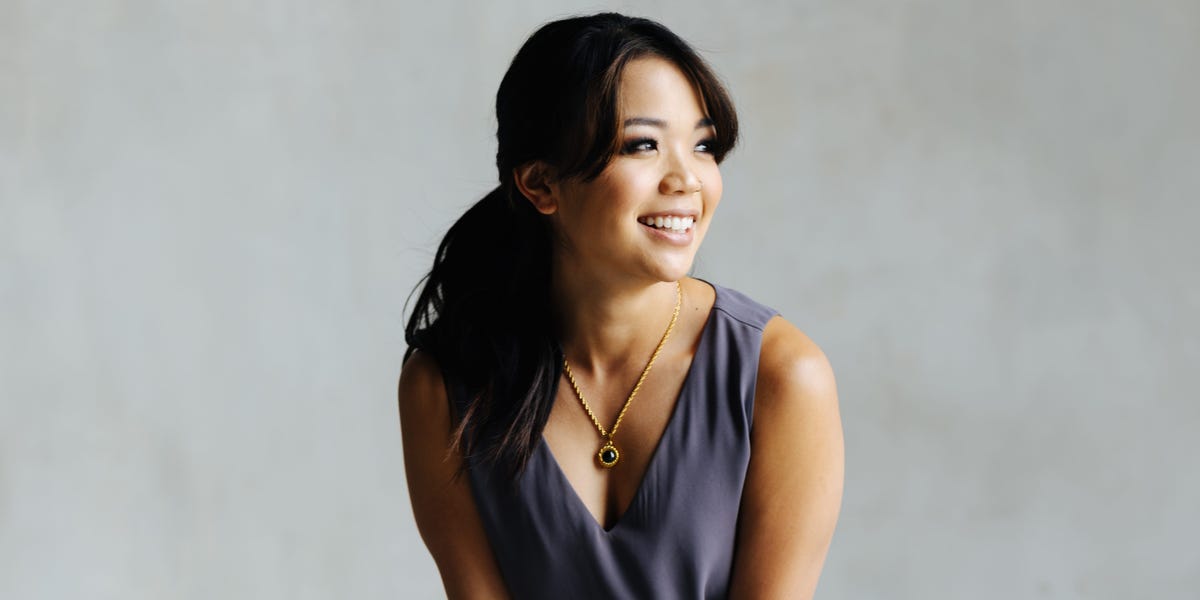- Personal trainer Sohee Carpenter hasn’t always had a healthy relationship with food and exercise.
- She was fixated on the fact that being thin was detrimental to her health, but has now rejected diet culture.
- Carpenter believes in body neutrality and emphasizes self-improvement and holistic health.
This as told essay is based on a conversation with Sohee Carpenter, a 34-year-old strength and conditioning coach with a BA in human biology and an MA in psychology based in Orange County. The following has been edited for length and clarity.
When I first started exercising as a teenager, it was all about cardio. I did as much cardio as possible and ate as little as possible.
In 2008, I started lifting weights in addition to cardio and learning about protein and macronutrients. I ate more, but I still wasn’t healthy because my approach was so rigid. I was a compulsive exerciser.
For years my focus was to be as slim as possible.
But now I know that health-promoting behaviors can be pursued regardless of body changes, weight and body composition.
My focus was on being small
Sohee Timmerman. Sohee Timmerman
I started coaching clients in 2012, but I was rigid in my approach because that was all I had learned.
Even in college, I tried to follow a strict meal plan, which made no sense: I couldn’t eat a perfectly measured portion of chicken breast, broccoli, and almonds in my college dining hall. Sometimes I would eat 13 hard-boiled egg whites for lunch because I didn’t know how else to track my macros.
I had a strong mentality: the leaner you are, the healthier, happier and better you are. The message I was putting forth was heavily focused on super diet culture as that was the norm for people who grew up in the 80s and 90s.
I was very fixated on being small and staying small.
As the years went by, I learned about flexible dieting and how to hit my macros while still eating less nutritious foods, but I didn’t think about the quality of my diet. I never cared about my fiber intake, all that mattered was whether my body looked good.
I now prioritize health over aesthetics
In recent years I have become more aware of problematic reporting in the fitness industry. For example, people say that obesity is a choice, a moral failing, the fault of the individual, or that it means you are lazy and less disciplined.
The coaching methods I learned earlier in my career dealt with weight stigma, and I now realize that approach doesn’t help people in the long run.
Praising people for losing weight may seem harmless, but it can perpetuate long-term problems, such as the irrational fear of regaining the weight, which can drive people to resort to unhealthy behaviors to maintain the weight .
If you engage in unhealthy behavior to lose weight, it is not healthy.
I don’t care what your body looks like. No matter what you look like, everyone deserves equal, non-stigmatizing access to health care and health-promoting behaviors.
I strive for ‘body neutrality’
A lot of people label me as ‘body positive’, but actually I’m not. However, I am a big believer in body neutrality.
It’s not about loving every part of your body, it’s more about being more neutral about your body and not fixating too much on the parts you like and don’t like. It’s about making your body less central to your life and taking up less of your mental bandwidth, because I think there are so many more interesting and important things you could spend your energy on that are much more fulfilling.
Trying to love every part of your body is not only unrealistic, but it still takes mental energy away from your body. I’m not trying to bash body positivity, but it’s not for me and it’s not made for someone like me.
I love seeing more body diversity in the fitness and health industry, and I think there is room for everyone to succeed, no matter what they look like.
I strive for self-improvement
Carpenter lifts weights and runs. Ben Timmerman
I no longer focus on changing how my body looks, but I still push myself hard and train a lot.
I’ve always been a big believer in continuous self-improvement in various areas of life, but when it comes to fitness, I like the idea that I can get fitter, faster and stronger as I get older.
I’ll be 35 in December and feel much healthier than I did in my twenties.
I started running again 13 months ago and it’s really cool to see myself getting faster. I am integrating mobility work into my training for the first time and I appreciate the importance of quality time with my family and friends for my health.
I watch my fiber intake and I’m so happy when I have loads of beans for dinner. I think about the quality and quantity of my sleep, all these things that were never a priority before. I now understand how they affect every aspect of life.
My motives for health-promoting behavior have matured. If all you care about is aesthetics and your only motivation is to eat and exercise a certain way, then to me that is a very superficial and one-dimensional view.
I am grateful that I have learned what I have and that I can see a more multi-dimensional meaning behind what I do.
I like the idea of working hard, challenging yourself and holding yourself to a high standard, while giving yourself a break when you need to and not being so hard on yourself. That’s how I try to live my life.

